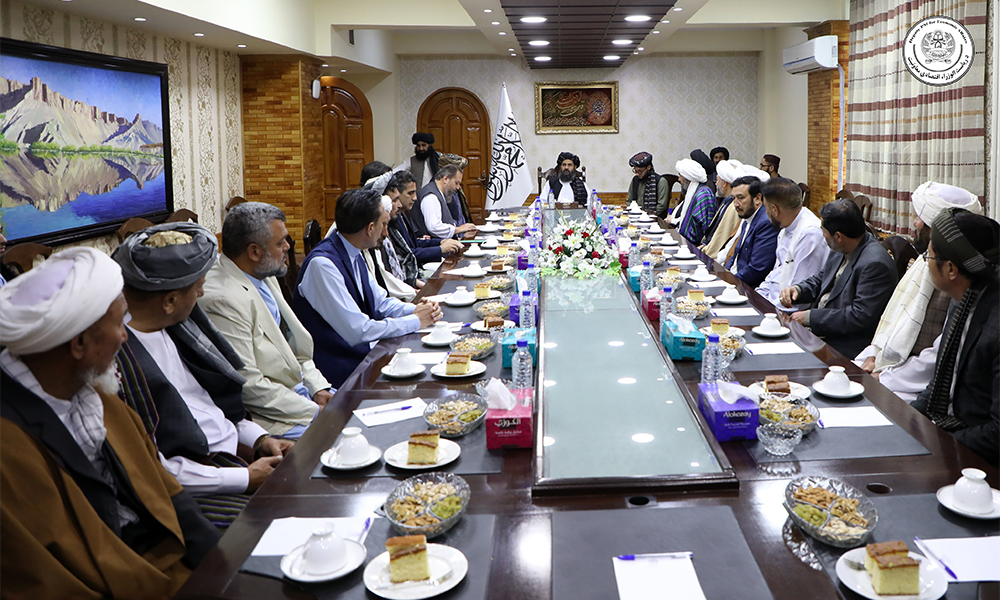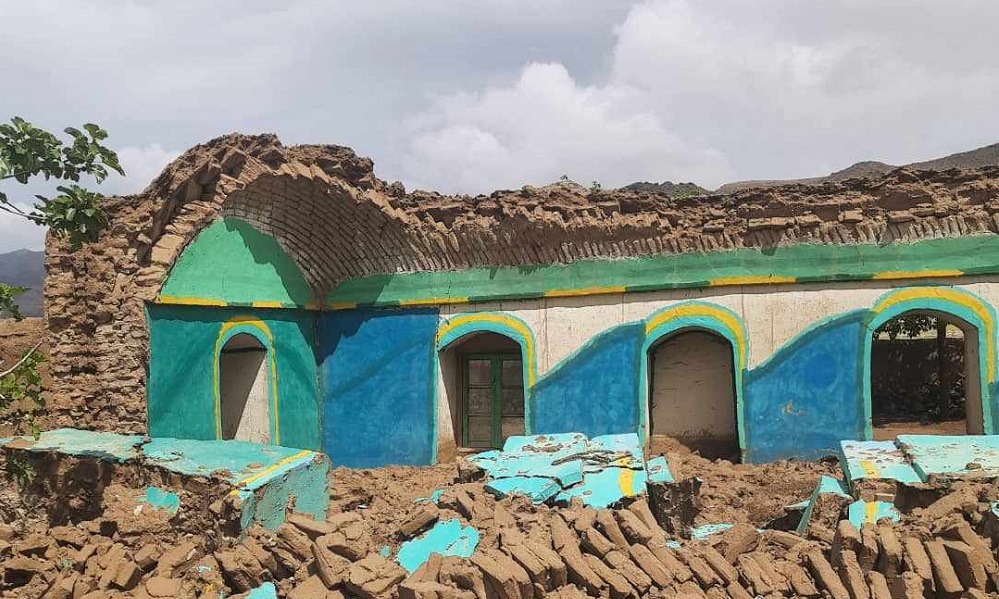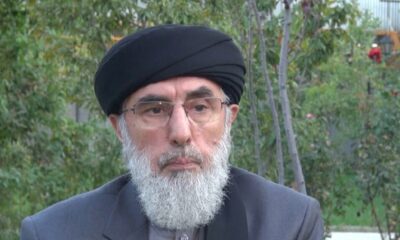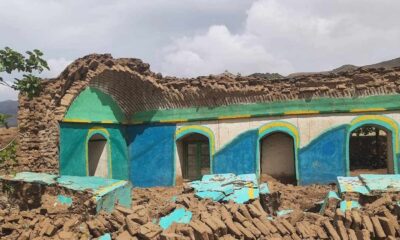Latest News
Baradar meets Shiite ulema; says IEA does not want a monopoly of power

First Deputy Prime Minister Mullah Abdul Ghani Baradar on Friday met with a delegation of Shia clerics and tribal elders and told them the Islamic Emirate of Afghanistan (IEA) does not want a monopoly of power.
Baradar said that Afghanistan is the “common home of all Afghans” and its development is the “common responsibility of all Afghans”.
“The position of the Islamic Emirate of Afghanistan is clear, it does not want monopoly of power,” Baradar told clerics and elders.
According to the clerics and tribal elders, they have always supported an Islamic system and they support the Islamic Emirate.
“We have always supported the Islamic Emirate and … we condemn all actions and efforts to weaken the existing Islamic system,” they said.
They also described the Islamic Emirate as the “core of unity and solidarity among the tribes living in Afghanistan” and that the “ulema has always prevented any kind of insurgency and insecurity in Shiite-populated areas”.
“The Bonn Conference is a document of the birth of occupation, ethnic and regional prejudices, and on the contrary the Doha agreement is a document of freedom and unity and brotherhood between nations,” they said.
Former ethnic dictators and other intelligence operatives who have maintained their interests in dividing the nation no longer exist here,” they stated.
The delegation also put forward some suggestions which they shared in writing with Baradar, the First Deputy Prime Minister’s Office said.
The door of the Islamic Emirate is open to every citizen of Afghanistan, Baradar said. Adding that “we welcome anyone who serves Afghanistan and the Afghan people.”
He stated that the welfare and economic stability of the people is an important program for government which aims to improve the economic situation in the short term, provide jobs to the people and increase the country’s national revenue.
Latest News
More than 800 Afghan refugees deported from Pakistan in two days

As many as 837 Afghan refugees have been forced to return to their country through Torkham and Spin Boldak crossings in the last two days, officials announced on Saturday.
The Ministry of Refugees and Repatriation said in a statement that 90 families comprising 468 people returned through Torkham crossing.
Another 67 families comprising 369 people returned through Spin Boldak crossing, it said.
The returnees have been introduced to international organizations to receive aid, and the Islamic Emirate has also paid 10,000 Afghanis to each family.
Pakistani government launched the second phase of deporting illegal refugees five days ago.
Latest News
Iran executes four Afghan prisoners

Iran executed four Afghan prisoners in Vakliabad Prison in Mashhad on Thursday morning, a human rights group reported.
Haalvsh said that the individuals had been arrested in 1398 over drug-related charges and then sentenced to death by the court.
This organization announced the names of the executed prisoners as Zaman Taheri, Salam Taheri, Gholam Qadir Samani and Ebrahim Noorzahi.
Zaman Taheri and Salam Taheri were brothers.
Iranian officials have not commented about the matter so far.
Latest News
Roof collapse kills two in Helmand

Two people were killed after roof of their house collapsed in southern Helmand province on Friday night, officials said.
Abdul Bari Rashid, head of information and culture in Helmand, told Ariana News that the incident occurred in Tajkan village of Gershak district due to heavy rain.
According to him, the dead include a woman and a child. A man was injured in the incident.
This comes as 10 people have died and six others have been injured as a result of the floods in Helmand province in the last one week.
-

 Sport5 days ago
Sport5 days agoACL fever grows as fixtures finalized
-

 Latest News5 days ago
Latest News5 days agoUS identifies Kabul airport suicide bomber
-

 Business5 days ago
Business5 days agoAfghanistan-Kazakhstan chamber of commerce opens in Herat
-

 World4 days ago
World4 days agoIsraeli military vows response to Iran attack as calls for restraint mount
-

 Sport3 days ago
Sport3 days agoATN secures exclusive rights to broadcast Paris 2024 Olympics
-

 Latest News4 days ago
Latest News4 days agoPakistani police give Afghans in Balochistan one day to leave
-

 Latest News4 days ago
Latest News4 days agoHekmatyar slams US for ‘occupying’ Afghanistan’s airspace
-

 Latest News4 days ago
Latest News4 days agoMedia Violation Commission bans two TV channels
























